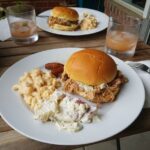Thinking about turning your kitchen into a small business? The idea of selling homemade food from the comfort of your home is appealing. But, before you start whipping up batches of cookies or brewing your signature coffee blend, it’s essential to understand the regulations surrounding cottage food operations. This guide answers common questions about the cottage food law, specifically addressing what you can and can’t sell from your home kitchen.
What is Cottage Food Law?
Cottage food laws allow individuals to produce and sell certain low-risk food products made in their home kitchens. These laws vary by state, but generally aim to provide a pathway for entrepreneurs to start small food businesses without the need for commercial kitchen spaces. The key is that these laws typically only permit the sale of foods that are considered non-potentially hazardous, meaning they don’t require refrigeration to prevent spoilage and the growth of harmful bacteria.
Cottage Food Law Restrictions: What You Can’t Sell
While cottage food laws offer opportunities, they also come with restrictions. The following foods are generally not allowed to be produced and sold under cottage food laws due to safety concerns:
- Potentially Hazardous Foods: Any food requiring refrigeration to prevent bacterial growth.
- Home-Canned Goods: Products like salsa, pickles, and other home-canned items. These require specific processes to ensure safety and prevent botulism. Cooked vegetable products like salsas and tomato sauces must meet significant federal and state training and licensing requirements. Cooked vegetables, whether fresh or canned, usually are made from a combination of low acid and acidified foods, and are considered a Potentially Hazardous Food. Cooked vegetables must be held either hot (above 135°F) or cold (below 41°F). They can’t be stored at room temperature, which makes them ineligible for production in a Cottage Food Operation.
- Certain Pies: Pumpkin pies, custard pies, pies with fresh, unbaked fruit, or any pie needing refrigeration after baking.
- Low Sugar Jams: Jams that do not meet the FDA’s standards for fruit butters, jellies, and preserves.
- Dehydrated Meat or Poultry: These are considered potentially hazardous due to the risk of bacterial growth.
- Raw Milk Products: Raw goat milk, raw goat cheese, or aged raw milk cheese.
- Alcoholic Beverages: Homemade beers or ciders. Contact your local alcohol control board for regulations on brewing and selling alcoholic beverages.
- Apple Cider: As a beverage, apple cider is typically not allowed.
- Syrups: Simple syrups or other syrups are often prohibited.
- Products with Raw Milk, Cream, or Butter: Even if you have your own cow, raw dairy products are generally not allowed in cottage food production.
Cottage Food Law Allowances: What You Can Sell
Despite the restrictions, a wide range of products can be sold under cottage food laws. Here are some common examples:
-
Baked Goods: Most baked goods like cookies, cakes, breads, and brownies are allowed. However, avoid decorating with fresh fruits or vegetables that require refrigeration.
-
Fruit Butters: Apple butter and other fruit butters are permitted, provided they meet the FDA’s definition of standardized fruit butters, jellies, and preserves.
-
Dry Bread Mixes: “Instant” bread mixes are usually allowed, as long as they meet the legal requirements.
-
Roasted Coffee Beans: Roasting coffee beans in your home kitchen for sale is typically permitted, provided the roaster is not commercial-sized.
-
Freeze-Dried Products: Freeze-dried versions of allowable cottage food products are often permitted. However, freeze-drying fresh fruits and vegetables may be prohibited.
-
Hard Candies and Lollipops: Candies cooked on a stovetop or in a microwave are often allowed, with temperature monitoring using a candy thermometer.
-
Donuts: Donuts and other low-risk fried products are often allowed if cooked in an oven, on a stovetop, or in an electric device designed for cooking food.
Important Considerations for Selling Food From Home
Beyond the specific product restrictions, there are other factors to consider when starting a cottage food business:
- Permitting and Licensing: Many states require a permit or license to operate a cottage food business.
- Labeling Requirements: Your products must be properly labeled with specific information, such as your name, address, ingredients, and a statement indicating the product was made in a home kitchen.
- Inspection: Your kitchen may be subject to inspection by local health authorities.
- Training: Some states require food safety training or certification.
- Regulations: Acidified food products such as mustards, barbeque sauces and ketchup sauces are made into shelf-stable products because of the formulation or acidification process. This requires pH control and in many cases a process authority review, as outlined by Federal Law 21 CFR Part 114. These products are not considered to be low risk, non-potentially hazardous foods.
- Dehydrators: Products using Dehydrators at low temperatures do not meet the requirement of a cook step.
- Pet Treats: The Cottage Food Law applies to human-grade food only.
- Addendum for new products: You may only produce for sale products pre-approved. If you are adding new products you must submit an addendum and pay additional fees.
Conclusion: Is Selling Food From Home Right for You?
Selling food from home can be a rewarding experience, but it’s crucial to understand and comply with cottage food laws. Research your local regulations, identify allowable products, and prioritize food safety. By taking these steps, you can turn your culinary passion into a thriving home-based business.
Ready to take the next step? Contact your local health department or agricultural agency to learn more about the specific cottage food laws in your area.
